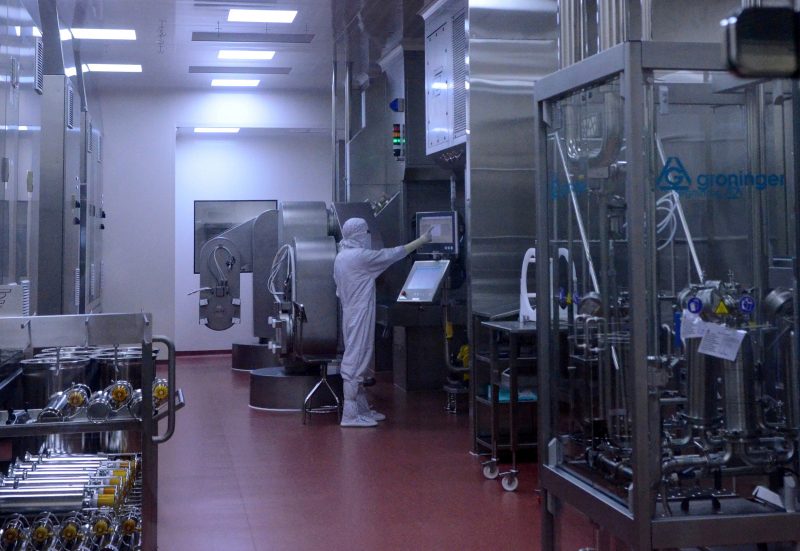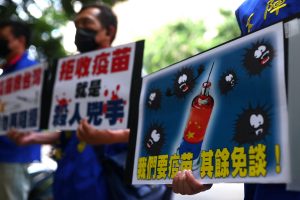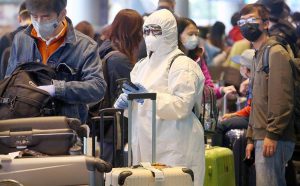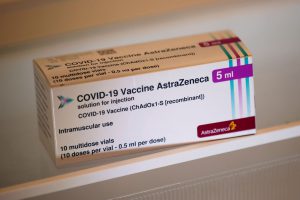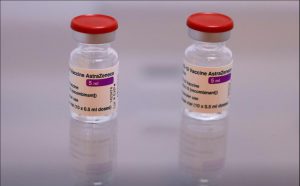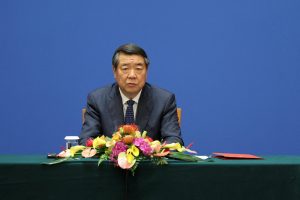The world’s largest vaccine producer has thrown its weight behind AstraZeneca’s Covid-19 candidate, labelling it as a “very good” option, rejecting charges that the University of Oxford-developed product has serious side-effects.
The sudden move was a reaction to an Indian trial participant’s lawsuit reported that day against vaccine manufacturer Serum Institute of India (SII).
The lawsuit claimed the volunteer had suffered serious neurological side-effects from the trial and demanded Rs50 million ($676,000) in compensation.
It also called for the testing, manufacturing, and distribution of the AstraZeneca vaccine to be “stopped immediately”.
Calling the lawsuit “malicious” and “misconceived”, the Indian vaccine major denied all allegations made by the volunteer on Sunday.
The Pune-based pharmaceutical giant also said that it is planning to file a $13.5 million countersuit.
This denial, however, added yet another twist to the British drugmaker’s vaccine saga, which has been mired in controversies since September.
READ MORE: Vaccine success seen as breakthrough in fight against virus
Last week SII, which has partnered with AstraZeneca to conduct trials on its Covishield vaccine candidate in India, said that if the trial secures local approvals expected in the next two weeks, it will apply for an emergency-use licence for the vaccine.
SII has already produced millions of doses of Covishield.
“This vaccine is a very good one,” said SII chief executive Adar Poonawalla, in a virtual press briefing following Indian Prime Minister Narendra Modi’s visit to the SII campus on Saturday.
Modi travelled across the country over the weekend to meet officials at SII, Bharat Biotech and a third developer, Cadila Healthcare, to check on the status of their shots.
“What we found with Covishield in its global trial is there were zero hospitalisations, which means even if you do get infected, you’re not going to have a severe attack. And secondly, even those who got the disease were not infecting others,” Mr Poonawalla said.
A bumpy ride
AstraZeneca faced its first trial hiccup in September when it halted clinical trials across the globe because of a suspected adverse reaction in a UK-based trial participant.
Trials in the UK, though, resumed on September 12, four days after the suspension, following safety reviewers’ confirmation that it was safe to continue with the trial. And SII also received approval from the Indian Council of Medical Research (ICMR), the medical research regulator, to resume trials on September 16.
Trials in US resumed in October, and on November 23, its developers in the UK claimed that the vaccine can protect 70.4% of people from becoming ill and – in a surprise result – up to 90% if a lower first dose is used, results from the final trial show.
Yet while Poonawalla’s comments come as a boost to those claims, some scientists raised renewed doubts early last week, about the robustness of the results showing the shot was 90% effective in a sub-group of trial participants who, by error initially, received a half dose followed by a full dose.
AstraZeneca and Oxford’s Jenner Institute clarified that, depending on the dosage, their vaccine was either 62% or 90% effective.
But according to a Financial Times report, what the British drugmaker also did not reveal initially was, the higher efficacy rate applied only to a small sample of patients aged 55 or younger, and that it had come about seemingly through error.
These omissions have sparked a storm of criticism over transparency and risk, fuelling anti-vaccine campaigners in the midst of what is still a raging pandemic.
And now, adding to its woes, is the 40-year-old Indian volunteer’s allegation that while there was no adverse reaction for the first 10 days after the vaccination on October 1, from the 11th day he had ‘started developing symptoms of acute encephalopathy’.
That, he claimed, led to a decline in his ability to reason and concentrate, memory loss, personality change and headaches, for which the volunteer spent seven days in an intensive care unit.
The ICMR though, that was also legally notified by the volunteer, told Reuters on Sunday there was currently “no immediate cause of concern,” nor are there any plans to halt the trial.
Vaccine wave ahead
But SII seems to be hedging too. Poonawalla said on Saturday that the vaccine SII is also developing in partnership with US-based Novavax will offer a significant edge over the vaccine candidates of other rivals, which need to be stored at much lower temperatures.
US vaccine developers Moderna and Pfizer have also recently announced strong efficacy results on their respective candidates, but both need to be stored at very low temperatures that would present challenges for many developing economies.
Meanwhile, according to the US-based International Federation of Pharmaceutical Manufacturers and Associations (IFPMA), 10 Covid-19 vaccines could be available by the middle of next year if they win regulatory approval.
Other manufacturers in the fray include Johnson & Johnson, Sanofi Pasteur, GSK and Merck, according to the IFPMA.
“We will hopefully by next summer have probably 10 vaccines which have proven their value but all of them really need to be submitted to rigorous scientific scrutiny by the regulators,” a spokesperson from IFPMA said.
- Reuters with additional editing by Indrajit Basu
NOTE: This report was amended on June 19, 2023 to meet new style standards (with minor edits).
READ MORE:
Covid vaccine news boosts corporate bonds as well as stocks




